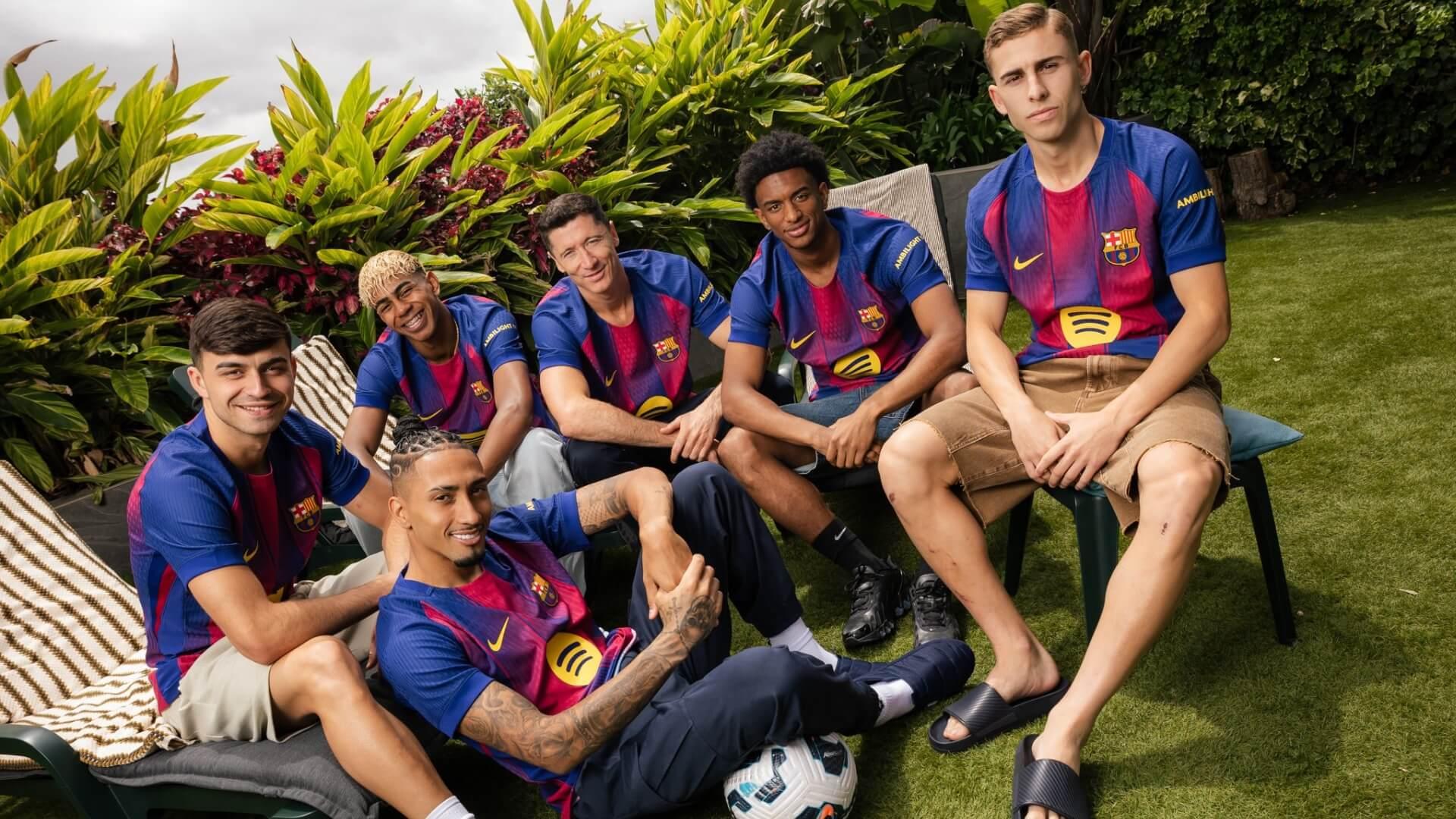Barcelona’s new sponsorship with DR Congo captures the hopes and contradictions of African sports diplomacy—a story of ambition, identity, and the challenge of turning global spotlight into local progress.
In a landmark move blending football and foreign policy, FC Barcelona has signed a four-year, €44 million sponsorship agreement with the Democratic Republic of Congo (DRC). The deal, announced on July 30, will see the emblem “RD Congo – Cœur de l’Afrique” featured on Barcelona’s training kits until 2029, positioning DRC as one of the most prominent African players in global sports diplomacy.
FC Barcelona and the Government of the Democratic Republic of Congo @MinSport_Loisir partner to promote culture and innovation in sports in the African country.
— FC Barcelona (@FCBarcelona) July 30, 2025
But while the partnership offers potential for cultural exchange and economic visibility, it also raises critical questions about governance, national priorities, and the politics of perception.
The sponsorship deal extends well beyond branding. It includes the creation of a “House of the DRC” cultural space at Camp Nou and the establishment of Barça Academy programs that will bring 50 Congolese youth and 10 coaches to Spain for elite training.
Framed by DRC Sports Minister Didier Budimbu as a rebranding initiative, the deal seeks to reshape Congo’s international image—from a nation often defined by conflict to one defined by cultural depth, youthful talent, and investment potential.
“This is about changing the narrative,” Budimbu said during the announcement. “Football is a tool for diplomacy, unity, and image-building.”
DR Congo joins a growing group of African nations using global football as a soft power tool. Rwanda set the precedent through high-profile partnerships with Arsenal, Paris Saint-Germain, and Bayern Munich, launching the “Visit Rwanda” branding campaign that has reportedly boosted tourism and international investment interest.
The Barcelona-DRC partnership indicates Africa’s rising confidence in this arena. It also underscores the shift in how European clubs structure sponsorships—embracing cultural and governmental partners, not just corporate brands.
Despite the international fanfare, the deal has sparked criticism in both Kinshasa and abroad. With 65% of Congolese living on less than $2.15 per day, critics argue that spending €44 million on European football branding reflects misplaced national priorities.
The critique becomes more pointed given DRC’s status as a global mineral powerhouse, producing over 70% of the world’s cobalt, yet still ranked among the poorest nations globally. Critics see the deal as a symbol of the resource-rich, development-poor paradox plaguing many African states.
The move also invites geopolitical scrutiny. Earlier this year, DRC officials condemned Rwanda’s sponsorships of Arsenal and PSG as “blood-stained,” citing Rwanda’s alleged backing of rebel groups in eastern Congo.
Now, DRC’s high-profile football partnership has prompted accusations of “sportswashing”—using international sports to distract from governance challenges and human rights concerns.
Observers note that the regional football diplomacy race could both elevate Africa's global presence and intensify intra-African tensions over narrative control and legitimacy.
For Barcelona, the deal offers not just financial assistance amid La Liga’s Financial Fair Play constraints, but also a rare opportunity to deepen the club’s engagement with the African continent—a region increasingly central to football’s global growth.
The cultural and training exchange elements also allow the club to expand its youth development pipeline while positioning itself as a socially engaged institution with a global footprint.
Whether the sponsorship delivers meaningful returns for DR Congo will depend on more than branding exposure. Success requires institutional follow-through, ensuring that increased visibility translates into tourism growth, investment flows, and youth development opportunities.
Rwanda’s Arsenal partnership worked in part because it aligned with a broader strategy of political stability, tourism reform, and narrative control. DRC, by contrast, must navigate persistent economic instability, regional insecurity, and institutional fragility to unlock similar dividends.
The DR Congo–Barcelona partnership represents a pivotal moment in Africa’s use of football for diplomatic influence. It could pave the way for other nations to leverage cultural soft power for strategic ends—or expose the limits of visibility-focused diplomacy in the absence of domestic alignment.
Either way, this deal will likely shape how European clubs engage with African governments in the coming decade—and how African leaders calibrate the risks and rewards of global sports diplomacy.
📸 Image via @FCBarcelona / X
Leave a comment
Your email address will not be published. Required fields are marked *





